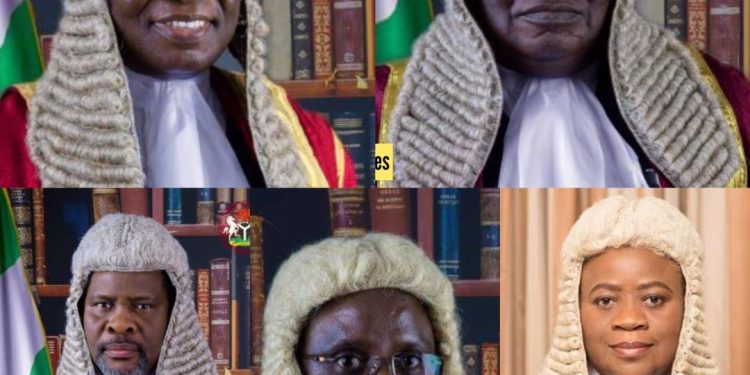The determination of petitions challenging the 2023 presidential election will be carried out by the Presidential Election Petition Tribunal (PEPT) Court situated at the Court of Appeal in Abuja. The PEPT, being the primary court with jurisdiction in presidential election-related petitions, will be staffed by designated judges from the Court of Appeal. In late 2020, the Chief Justice of Nigeria (CJN), Justice Olukayode Lateef Ariwoola, established two hundred and seventy-seven election petitions tribunal judges to oversee cases concerning the 2023 governorship, national, and state assembly elections.
As of now, the official declaration of the judges for the presidential election petition tribunal is still pending. The petitions against the presidential election count up to five, and they are filed by various parties and candidates. These include Peter Obi and the Labour party, Atiku Abubakar and Peoples Democratic Party, Action Alliance (AA) and its presidential candidate Mr Solomon Okangbuan, Allied People’s Movement (APM) and its presidential candidate, Princess Chichi Ojei, and Actions Peoples Party.
According to an official familiar with developments within the Court of Appeal and the National Judicial Council, the panel of judges who have already begun sitting on motions-expert filed by respective petitioners are expected to continue presiding over the case when pre-hearing and full hearing sessions begin at the PEPT. The panel of judges from the Court of Appeal who had presided over motions involving the 2023 presidential election and may be in the 2023 Presidential Election Petition Tribunal (PEPT) panel are as follows:
Justice Haruna Simon Tsammani, a distinguished legal professional from Bauchi state who has made significant contributions in his field. At the age of 64, he was appointed to the Court of Appeal on July 16th, 2010, where he has since served with distinction. Notably, he chaired a three-man panel that granted the motions of Obi and Atiku to serve Tinubu their petitions by substituted means.
JUSTICE HARUNA SIMON TSAMMANI
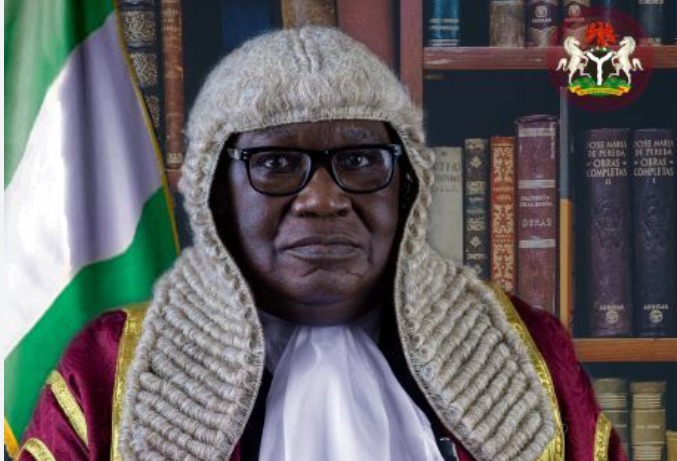
legal career began in 1983 when he graduated from the Nigerian Law School in Lagos. He later went on to become a High Court judge in Bauchi state on September 17th, 1998. Throughout his career, he has presided over numerous election and financial matters, including a petition filed by former Governor Abiola Ajimobi challenging the judgment of the 2019 Election Petition Tribunal. This case involved the senatorial election for Oyo South, which was held in February of that year and saw PDP’s Kola Balogun declared as the winner.
According to reports, Balogun emerged victorious with 105,720 votes while Ajimobi received 92,218 votes. However, Ajimobi contested the result and took his case to the Court of Appeal in Ibadan. His argument was that his opponent’s representative from the PDP was not eligible to participate in the election.
Unfortunately for Ajimobi, Justice Haruna Tsammani, who authored the lead judgment, found his petition to be without merit. The judge held that an individual who is not a member of a political party cannot challenge the outcome of its primary election.
JUSTICE STEPHEN JONAH ADAH
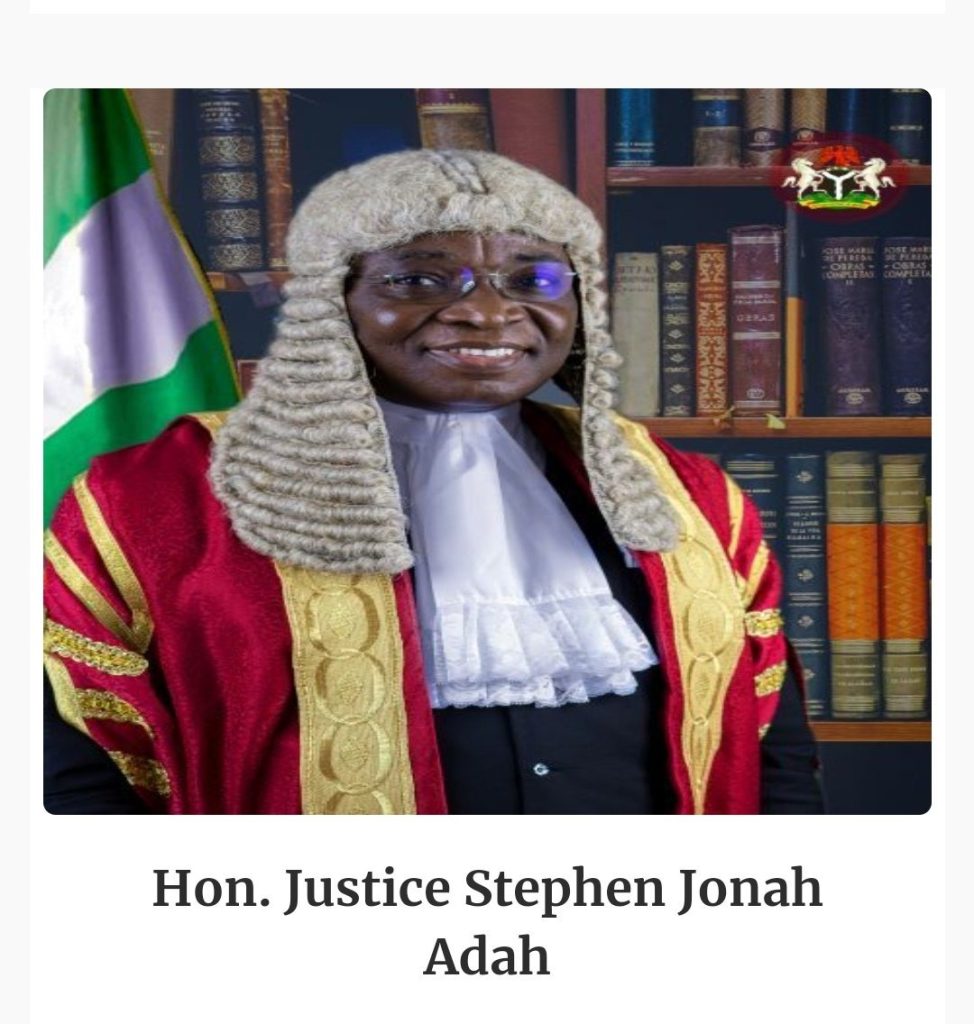
Stephen Jonah Adah, aged 66, was a member of the panel of three judges who granted Obi and Atiku’s motions to serve Tinubu their petitions through substituted means. He hails from De-Kina LGA in Kogi State, Nigeria. Adah graduated from the Nigerian Law School in 1982 and was appointed as a Federal High Court judge on November 12, 1998. He was later promoted to the Court of Appeal on November 5, 2012. Adah has presided over several cases, and one of his landmark decisions was in the appeal filed by the Economic and Financial Crimes Commission (EFCC) in 2020 against the trial court’s decision, which partially upheld the no-case submission filed by Robert Azibaola, former President Goodluck Jonathan’s cousin. The EFCC had charged Azibaola with money laundering offenses amounting to $40 million, but Adah dismissed the appeal, citing lack of sufficient evidence to prove the allegations beyond reasonable doubt.
The court ruled to discharge and acquit Azibaola and his company on counts 1, 4, 5, 6, 7, 8, and 9 as the prosecution failed to provide sufficient evidence for the alleged money laundering charges. After reviewing the records, Mr. Adah stated that the appeal lacked merit and was dismissed. The judgment of the lower court was upheld.
JUSTICE ABBA BELLO MOHAMMED
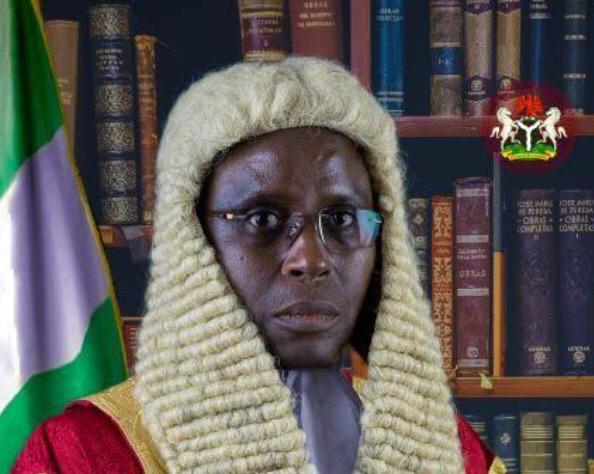
Justice Abba Bello Mohammed, a 62-year-old from Kano State, was a member of the three-person panel that granted Obi and Atiku’s requests to serve Tinubu with their petitions through substituted means. In 1985, he completed his legal studies at the Nigerian Law School and was appointed as a judge of the High Court of the FCT in 2010. After serving for approximately ten years, he was elevated to the Court of Appeal on June 28, 2021. In 2019, Justice Mohammed presided over the Nasarawa State Governorship Election Tribunal, where Hon. David Emmanuel Ombugadu, the PDP gubernatorial candidate in the 2019 general election, sued INEC and Governor Abdulahi Sule of the All Progressive Congress (APC).
The petition was dismissed by Justice Mohammed on the grounds of lacking merit. The petitioner’s claims of over-voting and electoral violence were deemed unsubstantiated.
JUSTICE JOSEPH IKYEGH
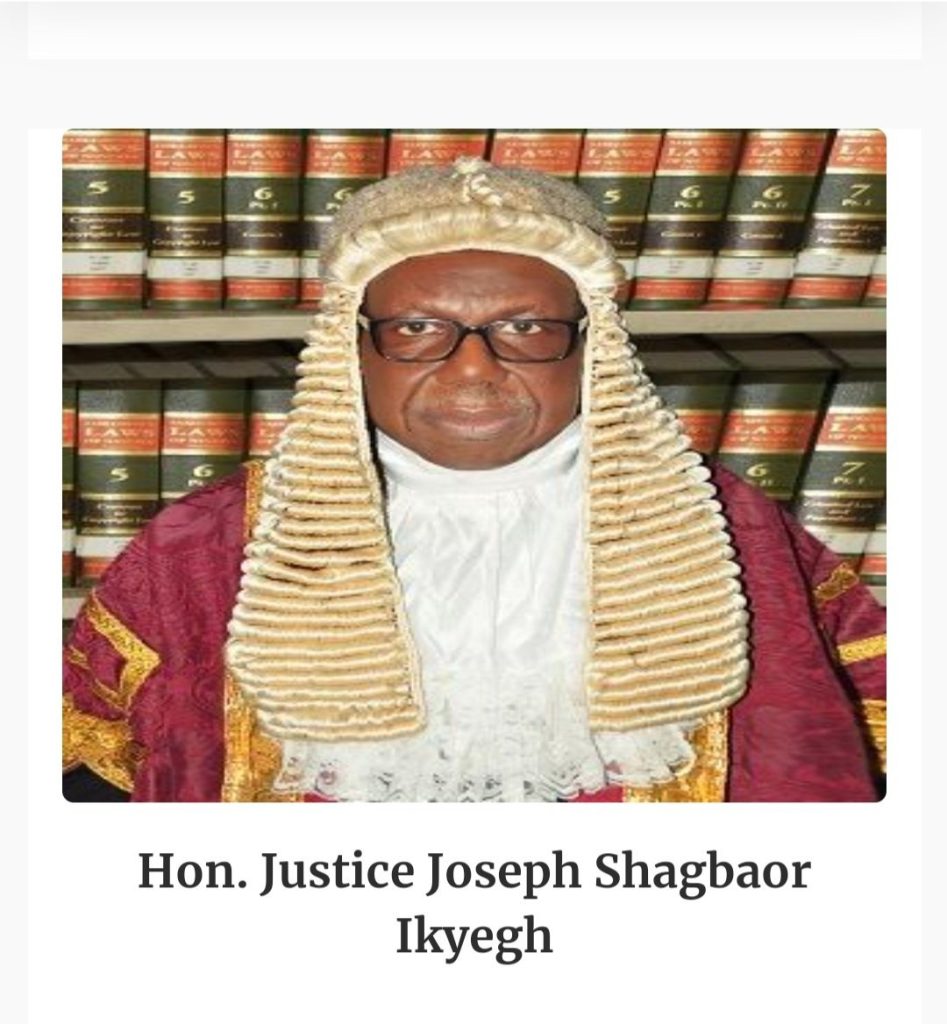
Justice Joseph Shagbaor Ikyegh, aged 65 and hailing from Benue State, was the head of the PEPT panel that directed the Independent National Electoral Commission to permit Atiku and Obi to scrutinize the electoral materials employed in the presidential election. He completed his legal education at the Nigerian Law School, Lagos, in 1980 and was appointed a Judge of the High Court, Benue State, on March 27, 1991, before being appointed as a Court of Appeal Justice on July 16th, 2010. Notably, Ikyegh was a member of the 5-person panel that presided over the 2019 presidential election petitions between Atiku and President Muhammadu Buhari. The panel dismissed Atiku’s case.
JUSTICE MONICA BOLNA’AN DONGBAN-MENSEM
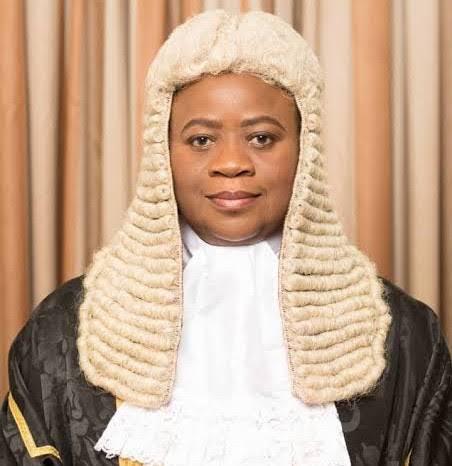
The Nigerian Law School in Lagos State was where Justice Monica Bolna’an Dongban-Mensem (66) completed her legal studies in 1980. She became a judge of the FCT High Court in 1993 and, a decade later, was appointed to the Court of Appeal on June 25th, 2003.
Justice Dongban-Mensem has extensive knowledge in various areas of law, including Criminal and Civil Procedure Law, Legislative Drafting, Constitutional, and Administrative Law, among others.
Among the notable cases she presided over was that of Farouk Lawan, the former chairman of the federal House of Representatives ad-hoc committee on fuel subsidy. In 2012, Lawan was found guilty of bribery on a three-count charge filed against him by the Independent Corrupt Practices Commission (ICPC). Justice Dongban-Mensem sentenced him to seven years imprisonment in June 2021.
Based on the verdict of the Court of Appeal in 2022, the ICPC’s allegations against Lawan on counts 1 and 2 were not proven. The counts in question pertained to Lawan’s alleged demand for $3 million from Femi Otedola to remove his company from the list of defaulters in the fuel subsidy scam. Appeal Court President Monica Dongban-Mensem led the three-member panel that made the decision, stating that the trial court’s ruling on these two counts cannot stand. As a result, Lawan’s jail term was reduced from seven to five years. It is worth noting that all members of the 5-man panel of Justices who presided over the 2019 Presidential election petitions, except Justice Peter Ige, have left the Court of Appeal. Justice Ige is set to retire on July 12, 2023, having reached the retirement age of 70.
It cannot be guaranteed that Ige will be part of the 2023 panel as the Tribunal is constitutionally required to conclude election-related petitions within 180 days from the conclusion of the election. However, based on the previous pattern of the Court of Appeal, it is probable that Justice Monica Dongban-Mensem, the current president, may lead the 2023 PEPT Tribunal, following in the footsteps of Justice Zainab Bulkachuwa who presided over the 2019 PEPT panel. It is noteworthy that Justice Bulkachuwa had to recuse herself from the 2019 PEPT due to a petition filed by the PDP alleging bias on the basis that her husband was a senator-elect under the APC.
According to the Court of Appeal website, the appellate court currently has 77 Justices. Dongban-Mensem is the most senior judge, followed by Justices Raphael Chikwe Agbo at position 2, Jimi Olukayode Bada at position 3, Oyebisi Folayemi Omoleye at position 4, Ahmad Olanrewaju Belgore at position 5, Jummai Hannatu C. Sankey at position 6, Ali Abubakar Babandi Gumel at position 7, Uzoamaka Ifeyinwa Ndukwe-Anyanwu at position 8, Chidiebere Nwaoma Uwa at position 9, Chioma E. Nwosu-Iheme at position 10, Theresa Ngolika Orji-Abadua at position 11, Joseph Shagbaor Ikyegh at position 12, and Haruna Simon Tsammani at position 13.
It is probable that the selection process for the 2023 presidential panel will follow the pattern of the 2019 PEPT, where the five-man panel consisted of retired senior members of the appellate court, some of whom went on to serve in the Supreme Court.


